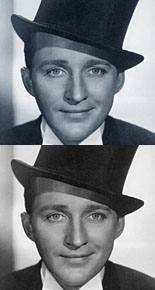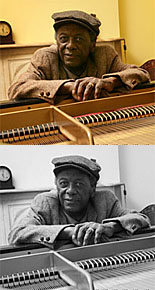Home » Jazz Articles » Old, New, Borrowed and Blue » Making Cents Of It All: Jazz Enters The Money Jungle
Making Cents Of It All: Jazz Enters The Money Jungle
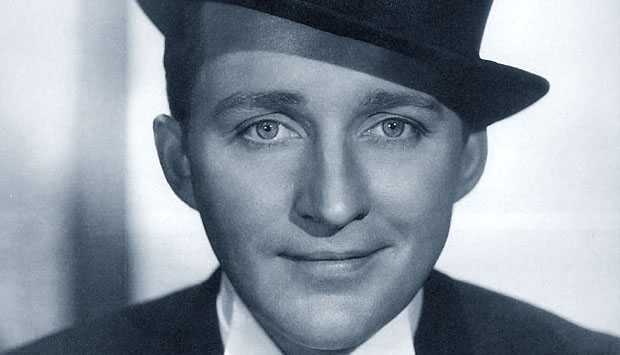
At the same time, the government seems to be mudslinging over money like never before. With a near-shutdown of the federal government averted at the buzzer, and arguments over everything from military spending and public services to Planned Parenthood and the Bush-era tax cuts, it's a wonder that anybody can reach an agreement on anything these days! While no two people see the situation the same way, nearly everybody seems to have the deficit blues these days and a great depression—not the great depression—certainly hangs over many heads. With these thoughts in mind, this edition of Old, New, Borrowed and Blue will focus on money-related material of a musical nature.
Old
 While the famed collaboration between Duke Ellington, Max Roach and Charles Mingus, Money Jungle (Blue Note, 1962), was recorded nearly a half a century ago as of this writing, the music doesn't show its age, and the title resonates strongly with the current climate. While Mingus and Roach were both established leaders and composers at the time of this recording, every piece on the album comes from Ellington's world. Ellington mixed old favorites, like "Caravan" and "Solitude," with new numbers, like "Fleurette Africaine," which placed Ellington's mournful piano lines atop Mingus' fluttery bass and Roach's understated tom-tom work, and the occasionally Monk-ish "Wig Wise."
While the famed collaboration between Duke Ellington, Max Roach and Charles Mingus, Money Jungle (Blue Note, 1962), was recorded nearly a half a century ago as of this writing, the music doesn't show its age, and the title resonates strongly with the current climate. While Mingus and Roach were both established leaders and composers at the time of this recording, every piece on the album comes from Ellington's world. Ellington mixed old favorites, like "Caravan" and "Solitude," with new numbers, like "Fleurette Africaine," which placed Ellington's mournful piano lines atop Mingus' fluttery bass and Roach's understated tom-tom work, and the occasionally Monk-ish "Wig Wise." The title track begins with Mingus' springy and insistent bass, but Roach quickly joins the fray with some propulsive ride cymbal work. Ellington and Mingus shout back and forth with one another in a remarkably open manner that shows the hidden, outside tendencies in Ellington's work. Fortunately, Duke also mixes bluesy sensibilities into the music and Mingus' second round of jabs run smack into a more straightforward sound. When the song eventually winds down, so do the musicians. As the track nears its end, Mingus' exhortations and Roach's drumming start to peter out and sputter, eventually grinding down to a conclusive halt. "Money Jungle" is rightly viewed as a classic by most accounts, but it should also be appreciated for the strikingly modern view that Ellington took with the majority of his performances. This song, and a good part of the album, actually marries the essence of bop, post bop, avant-garde, honky tonk and the blues in such a natural way that it almost seems to belong to all of these schools and none of these schools at the same time.
New
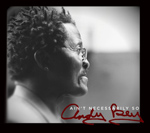 My earlier reference to the great depression was no accident. While people still argue about whether the current recession is or isn't over, unemployment is here like a modern day plague, the price at the pump is hurting everybody and plenty of people are down in the dumps over it. When the United States was suffering through the Great Depression, plenty of songwriters tried to take peoples' minds off of their hard times by writing songs of a positive nature, but some pieces presented a more realistic outlook and captured the tenor of the times.
My earlier reference to the great depression was no accident. While people still argue about whether the current recession is or isn't over, unemployment is here like a modern day plague, the price at the pump is hurting everybody and plenty of people are down in the dumps over it. When the United States was suffering through the Great Depression, plenty of songwriters tried to take peoples' minds off of their hard times by writing songs of a positive nature, but some pieces presented a more realistic outlook and captured the tenor of the times. "Brother, Can You Spare Dime?," written by composer Jay Gorney and lyricist E.Y. "Yip" Harburg, is often recognized as the beacon of musical truth and reality from this era, and it has continued to resonate with the masses over the past 75-plus years. From its minor key beginnings and memories of past glories, to its realistic understanding of the current state of gloom, the song strikes a chord like few others did during that period (or do today).
While Bing Crosby was, and still is, recognized as the chief vocal delivery man of this song, other jazz singers have taken their crack at this one in more recent times. Abbey Lincoln delivered an appropriately sad version of the piece during her early '90s renaissance, and vocalist Andy Bey took a completely different approach with this piece on Ain't Necessarily So (12th Street Records, 2007).
While most singers accentuate the negative in this song, Bey married the downtrodden demeanor of the words with an up-tempo swing feel and soulful sound. Snippets of scat singing are worked into the song, and Bey occasionally comes off like a Bill Withers for the jazz set, but he's largely his own man. Drummer Vito Lesczak's crisp hi-hat swing provides an energetic lift to the music and Bey's piano work matches his singing every step of the way. The band even takes this decidedly different take on a classic in a completely different direction when they move into a soul-funk vamp at the backend of the song. Bey is one those figures who continues to create music that's timeless and timely, like this particular performance, and one can only hope that more people become exposed to his astounding artistry as time marches on.
Borrowed
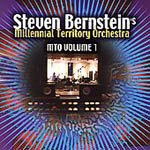 When director Robert Altman hired Steven Bernstein as the associate music producer for his jazz-soaked film, Kansas City (1996), the trumpeter began to immerse himself in the music of the '20s and '30s. Music producer Hal Willner passed along recordings of Kansas City groups and various territory bands, allowing Bernstein to internalize the music of this era and this, ultimately, led to his formation of the Millennial Territory Orchestra. This band doesn't just borrow the word "territory" in its title, but it actually provides a modern spin on an 80 year-old sound.
When director Robert Altman hired Steven Bernstein as the associate music producer for his jazz-soaked film, Kansas City (1996), the trumpeter began to immerse himself in the music of the '20s and '30s. Music producer Hal Willner passed along recordings of Kansas City groups and various territory bands, allowing Bernstein to internalize the music of this era and this, ultimately, led to his formation of the Millennial Territory Orchestra. This band doesn't just borrow the word "territory" in its title, but it actually provides a modern spin on an 80 year-old sound. While the band made its first appearances at the now-defunct Tonic in 1999 in New York City, they didn't actually record their first proper CD until six years later. MTO Volume 1 (Sunnyside, 2006) features a wide range of songs, including re-imagined hippie anthems (The Grateful Dead's "Ripple") and a reworked version of a Motown masterpiece (Stevie Wonder's "Signed, Sealed, Delivered"), but it also touches on material from the same period when territory bands roamed the land. Their take on another Bing Crosby-associated number, "Pennies From Heaven," is one of the standout tracks on their debut.
The song was originally featured in a 1936 Crosby movie of the same name and, as opposed to "Brother, Can You Spare A Dime," the song largely carries a more uplifting, if unrealistic, message. On Bernstein's version, guitarist-banjoist-singer Matt Munisteri is the clear star, providing an introduction for the band and delivering a perky vocal that's as cheery as the title. The horns perfectly capture the sound of that period, a saxophone solo provides some mid-track contrast, and the rhythm section is superb, creating a solid and swinging foundation for the band. While pennies, or dimes for that matter, don't go very far in this inflationary age, the concept of money falling from the sky is something that anybody can still smile about.
Blue
 Herbie Hancock is an American musical icon, with countless classic recordings under his belt, numerous awards testifying to his importance, and the respect of the music community in every corner of the world, but he didn't start out that way. When Hancock arrived in New York, approximately fifty years ago, he was a relative unknown and, despite his meteoric rise, he spent this period of time paying his dues like any other professional musician-in-the-making.
Herbie Hancock is an American musical icon, with countless classic recordings under his belt, numerous awards testifying to his importance, and the respect of the music community in every corner of the world, but he didn't start out that way. When Hancock arrived in New York, approximately fifty years ago, he was a relative unknown and, despite his meteoric rise, he spent this period of time paying his dues like any other professional musician-in-the-making. About a year before Hancock first recorded with Miles Davis, and after he had already been featured on record with trumpeter Donald Byrd's group, the pianist went into the studio to record his debut, Takin' Off (Blue Note, 1962). While the opening track on that record ("Watermelon Man") would become one of the most identified and oft-covered jazz standards in history, another song testified to the life of the struggling musician. "Empty Pockets" was a reference to Hancock's fiscal woes at the time, confirmed by his own admission—"I was in a sad financial state when I wrote this"—in Leonard Feather's original liner note. While this expertly crafted blues didn't make waves like "Watermelon Man," it still provides plenty of enjoyable moments. Billy Higgins' inimitable swing underscores the whole thing, while Butch Warren locks everything in place. Freddie Hubbard and Dexter Gordon both solo with appropriately bluesy sentiments, but Hancock remains the star of the song, digging deeper than the other soloists on this soulful blues.
While the financial crisis in the United States isn't going away anytime soon, it's nice to know that we can still sit back and smile while listening to these musical expositions on a theme of financial hardship. Feel free to respond with your favorite money-related material or depression-era ditty and stay tuned for more Old, New Borrowed and Blue.
< Previous
Michael Bisio: Stepping Into the Lime...
Next >
Agogic
Comments
Tags
Old, New, Borrowed and Blue
Dan Bilawsky
United States
duke ellington
Max Roach
Charles Mingus
Bing Crosby
Abbey Lincoln
Andy Bey
Vito Lesczak
Steven Bernstein
Stevie Wonder
Matt Munisteri
Miles Davis
Donald Byrd
Leonard Feather
Billy Higgins
Butch Warren
Freddie Hubbard
Dexter Gordon
For the Love of Jazz
 All About Jazz has been a pillar of jazz since 1995, championing it as an art form and, more importantly, supporting the musicians who create it. Our enduring commitment has made "AAJ" one of the most culturally important websites of its kind, read by hundreds of thousands of fans, musicians and industry figures every month.
All About Jazz has been a pillar of jazz since 1995, championing it as an art form and, more importantly, supporting the musicians who create it. Our enduring commitment has made "AAJ" one of the most culturally important websites of its kind, read by hundreds of thousands of fans, musicians and industry figures every month.





